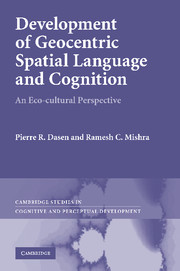Book contents
- Frontmatter
- Contents
- List of figures
- List of tables
- Preface
- Acknowledgements
- Part I Introduction and methods
- Part II Results
- 4 Pilot study in Bali and first study (India and Nepal, 1999–2000)
- 5 Returning to Bali: main study 2002–2007
- 6 Varanasi
- 7 Kathmandu
- 8 Panditpur
- 9 Geneva
- Part III Additional studies
- Part IV Conclusions
- Appendices
- Bibliography
- Name index
- Subject Index
4 - Pilot study in Bali and first study (India and Nepal, 1999–2000)
Published online by Cambridge University Press: 02 December 2010
- Frontmatter
- Contents
- List of figures
- List of tables
- Preface
- Acknowledgements
- Part I Introduction and methods
- Part II Results
- 4 Pilot study in Bali and first study (India and Nepal, 1999–2000)
- 5 Returning to Bali: main study 2002–2007
- 6 Varanasi
- 7 Kathmandu
- 8 Panditpur
- 9 Geneva
- Part III Additional studies
- Part IV Conclusions
- Appendices
- Bibliography
- Name index
- Subject Index
Summary
In this chapter, we present the results of the study carried out in Bali in 1994 (Wassmann & Dasen, 1996, 1998, 2006) and the subsequent research in India and Nepal in 1999–2000. Most of these results have already been published in various papers. Mishra, Dasen, and Niraula (2003) is an overview of the first study, with a focus on the ecological factor. The urban/rural comparison is presented in detail in Mishra and Dasen (2005) and the comparison of schooled and unschooled children in Dasen, Mishra, and Niraula (2004). Focusing on the study in Nepal is the paper by Niraula, Mishra, and Dasen (2004). Here we extract from these publications a summary of the results, with some comments showing links to the main study. For some of the computations, we take advantage of statistical procedures, such as Princals optimal scaling, that were not available to us in these first studies, but that we use for the main study. We also present a few aspects that have not been published earlier.
Bali, 1994
In Bali, Wassmann and Dasen discovered the existence of a geocentric FoR for the first time, so we spent a lot of time on ethnographic observations, for example on the way the Balinese orientation system (KKKK) is precisely used in various locations (see Figure 3.2). It will be recalled from chapter 3 that the Balinese system consists of two orthogonal axes, one being kaja–kelod, “to the mountain/upstream – to the sea/downstream,” and the named transverse, kangin–kauh (the translation of which is controversial, as discussed in chapter 3).
- Type
- Chapter
- Information
- Development of Geocentric Spatial Language and CognitionAn Eco-cultural Perspective, pp. 109 - 140Publisher: Cambridge University PressPrint publication year: 2010

